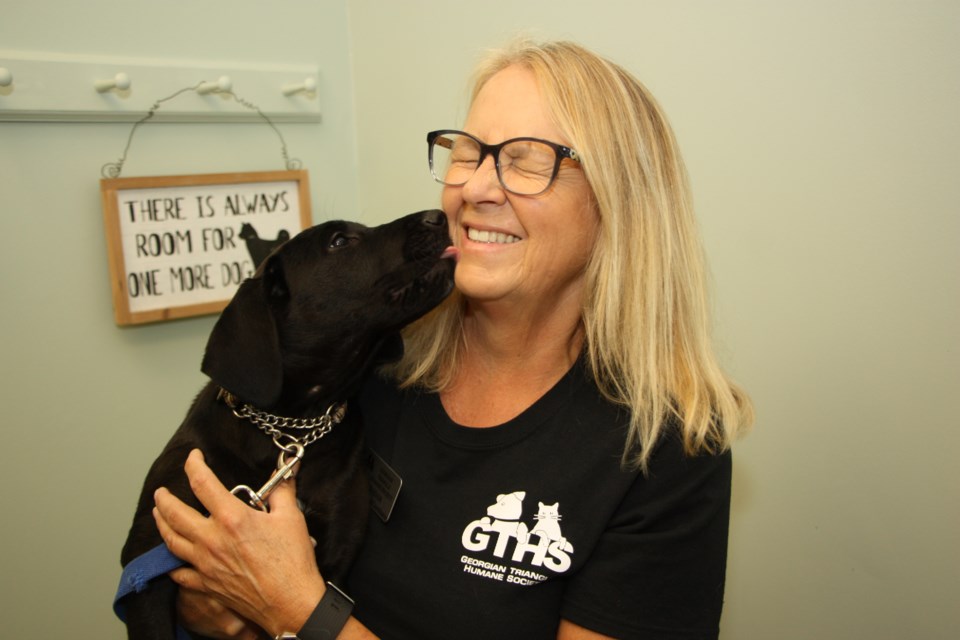More than 1,000 animals found homes thanks to the work of the Georgian Triangle Humane Society (GTHS) this year, but that’s no the only thing the shelter did to help animals in 2018.
Executive Director Sonya Reichel reflected the year’s successes, and the shelter staff’s mandate to show “love lives here.”
That was the theme of 2018 for the shelter.
“Those powerful words helped to ground us when we faced many challenges,” said Reichel. “Our original vision was to encapsulate the multitude of ways that love abounds within the GTHS shelter walls.”
Those challenges often included the sad sight of an animal at the brink of death and in desperate need of medical attention.
A black pug mix named Penny was found in Meaford this year. The senior dog was severely malnourished and suffered from an injury to her eye. After 24 hours at the shelter, her eye erupted and she required surgery to have it removed. But GTHS staff and volunteers rallied to give Penny her best chance at a happy retirement.
Penny has recently been adopted into a home where she will live out her senior years in peace and comfort, according to Reichel. It’s one of the stories that stands out in her memory this year.
As of Dec. 21, the GTHS helped adopt out 214 dogs, 841 cats, and one rabbit. But adoptions were only part of it. The GTHS piloted two spay/neuter clinics for financially limited pet owners, to help fix nearly 100 pets in the community.
Through their community cat program, the shelter helped fix 222 cats in Meaford, Collingwood, Clearview, and Wasaga Beach.
“To us, the [Love Lives Here] slogan represented the trust that an abandoned pet puts in us, the magic of witnessing a dog learn to play, the hope shining through the eyes of a special needs pet, the volunteers who bring compassion and dedication to each and every shift, and the adopters who open their hearts and homes to homeless pets,” said Reichel.
As she looks forward to next year, Reichel is reflecting on the love shown outside the walls at the GTHS, and the relationship between pets and people.
“This year we established that our work does not only support pets in need, but people as well,” said Reichel.
In addition to a pet retention program, which aims to keep pets with their families by helping in a financial crisis, the GTHS also started a humane education program.
The new program functions in a few ways by teaching youth about pet ownership, and also working with at-risk youth by providing them an opportunity for learning about animals while surrounded by animals. You can read more about the program here.
The team at GTHS recently secured a three-year grant through the Ontario Trillium Foundation for the Humane Education program to ensure they will be impacting 2,000 youth annually for the next three years.
The challenge in the GTHS mandate this year, and most years, is fundraising. The shelter doesn’t receive government funding, and has to raise 100 per cent of its operational funding through donations and events.
According to Reichel, the shelter needs to raise $300,000 a year from donations and another $200,000 a year through charity events.
“We are extremely grateful to the community members who have helped in our work towards our mission and vision and hope more donors will choose the GTHS as a charity they support,” said Reichel.
For a list of animals currently up for adoption, visit the GTHS website here.





